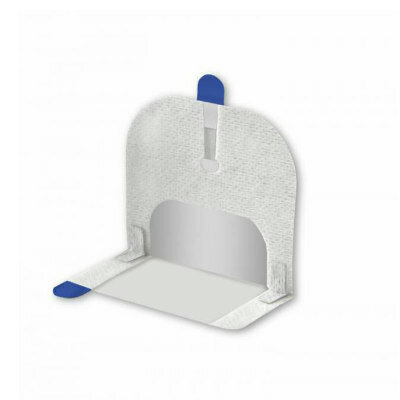GE HealthCare Acquires AI Imaging Analysis Company MIM Software
|
By MedImaging International staff writers Posted on 15 Jan 2024 |

GE HealthCare (Chicago, IL, USA) has entered into an agreement to acquire MIM Software (Cleveland, OH, USA), a global provider of medical imaging analysis and artificial intelligence (AI) solutions for the practice of radiation oncology, molecular radiotherapy, diagnostic imaging, and urology at imaging centers, hospitals, specialty clinics, and research organizations worldwide. GE HealthCare aims to leverage MIM Software’s imaging analytics and digital workflow capabilities across various care areas to speed up innovation and differentiate its solutions for benefitting patients and healthcare systems across the world.
MIM Software has a portfolio of innovative imaging solutions that provide various beneficial features, such as the integration of diagnostic images from multiple modalities into treatment plans, automation to reduce repetitive tasks and manual interventions, quantitation and advanced processing in diagnostic imaging and nuclear medicine to determine therapy response and a platform to assist with Theranostics imaging and dosimetry. GE HealthCare plans to integrate MIM Software solutions into its advanced visualization offerings to aid AI-based segmentation and contouring as well as dosimetry analysis for patients during their treatment journeys and in the expanding areas of radiology, molecular imaging, and radiation oncology.
With novel therapies becoming more widely available, providers are depending on advanced imaging, workflow, and digital solutions to gain critical information and help develop faster, more effective treatment plans. With the acquisition of MIM Software, GE HealthCare aims to strengthen its focus and offerings to support the broad practice of precision care across various disease states and imaging practices, including Theranostics in oncology for the treatment of advanced prostate cancer, streamlined workflow solutions in radiation oncology to simplify complex cancer treatment plans, beta-amyloid imaging in neurology for the diagnosis and monitoring of Alzheimer’s patients, and myocardial perfusion to diagnose coronary artery disease (CAD).
“We are committed to providing comprehensive, connected devices and digital solutions that enable providers to improve patient care across multiple specialties,” said Peter Arduini, President & CEO of GE HealthCare. “We expect our efforts to bring these two complementary organizations and innovative product portfolios together to strengthen our capabilities as a leading provider of integrated imaging systems, analytics, and advanced digital workflows across several care areas and pathways – including Theranostics, radiation oncology, urology, neurology and cardiology. Now and in the future, we are working to transform patient care.”
“Our anticipated acquisition of MIM Software will mark a key moment in the evolution of our technology. By integrating MIM Software’s cutting-edge imaging analytics and AI-driven solutions with GE HealthCare’s advanced medical technology, we are not just expanding our capabilities, but joining together to embrace the possibilities of precision care. This intended merger is a fusion of innovative visions, aimed at evolving the way we detect, treat, and manage disease,” added Taha Kass-Hout, MD, MS, Chief Technology Officer of GE HealthCare. "GE HealthCare is committed to developing smart, AI-powered devices that cater to specific disease states, thereby enabling clinicians to deliver more personalized care. We expect the integration of MIM Software will also advance our efforts in connecting data across care pathways. It is a leap towards a future where healthcare is more precise, connected, and efficient, with the goal of benefitting providers and patients worldwide.”
“We are excited by the prospect of joining GE HealthCare and thrilled to share this exciting news,” said Andrew Nelson, CEO of MIM Software. “Over the past two decades, we have worked to develop innovative vendor agnostic products and deliver quality services to earn the trust of our customers – this will not change. As a part of GE HealthCare, we anticipate developing new and increasingly integrated digital solutions to meet our customers’ most complex and pressing needs, today and into the future. Together, we will build upon our shared legacies of enhancing patient care.”
Latest Industry News News
- Bayer and Google Partner on New AI Product for Radiologists
- Samsung and Bracco Enter Into New Diagnostic Ultrasound Technology Agreement
- IBA Acquires Radcal to Expand Medical Imaging Quality Assurance Offering
- International Societies Suggest Key Considerations for AI Radiology Tools
- Samsung's X-Ray Devices to Be Powered by Lunit AI Solutions for Advanced Chest Screening
- Canon Medical and Olympus Collaborate on Endoscopic Ultrasound Systems
- First Ever International Criteria Lays Foundation for Improved Diagnostic Imaging of Brain Tumors
- RSNA Unveils 10 Most Cited Radiology Studies of 2023
- RSNA 2023 Technical Exhibits to Offer Innovations in AI, 3D Printing and More
- AI Medical Imaging Products to Increase Five-Fold by 2035, Finds Study
- RSNA 2023 Technical Exhibits to Highlight Latest Medical Imaging Innovations
- AI-Powered Technologies to Aid Interpretation of X-Ray and MRI Images for Improved Disease Diagnosis
- Hologic and Bayer Partner to Improve Mammography Imaging
- Global Fixed and Mobile C-Arms Market Driven by Increasing Surgical Procedures
- Global Contrast Enhanced Ultrasound Market Driven by Demand for Early Detection of Chronic Diseases
- Use of Advanced Imaging Surges in Emergency Departments
Channels
Radiography
view channel
Novel Breast Imaging System Proves As Effective As Mammography
Breast cancer remains the most frequently diagnosed cancer among women. It is projected that one in eight women will be diagnosed with breast cancer during her lifetime, and one in 42 women who turn 50... Read more
AI Assistance Improves Breast-Cancer Screening by Reducing False Positives
Radiologists typically detect one case of cancer for every 200 mammograms reviewed. However, these evaluations often result in false positives, leading to unnecessary patient recalls for additional testing,... Read moreMRI
view channel
PET/MRI Improves Diagnostic Accuracy for Prostate Cancer Patients
The Prostate Imaging Reporting and Data System (PI-RADS) is a five-point scale to assess potential prostate cancer in MR images. PI-RADS category 3 which offers an unclear suggestion of clinically significant... Read more
Next Generation MR-Guided Focused Ultrasound Ushers In Future of Incisionless Neurosurgery
Essential tremor, often called familial, idiopathic, or benign tremor, leads to uncontrollable shaking that significantly affects a person’s life. When traditional medications do not alleviate symptoms,... Read more
Two-Part MRI Scan Detects Prostate Cancer More Quickly without Compromising Diagnostic Quality
Prostate cancer ranks as the most prevalent cancer among men. Over the last decade, the introduction of MRI scans has significantly transformed the diagnosis process, marking the most substantial advancement... Read moreUltrasound
view channel
Deep Learning Advances Super-Resolution Ultrasound Imaging
Ultrasound localization microscopy (ULM) is an advanced imaging technique that offers high-resolution visualization of microvascular structures. It employs microbubbles, FDA-approved contrast agents, injected... Read more
Novel Ultrasound-Launched Targeted Nanoparticle Eliminates Biofilm and Bacterial Infection
Biofilms, formed by bacteria aggregating into dense communities for protection against harsh environmental conditions, are a significant contributor to various infectious diseases. Biofilms frequently... Read moreNuclear Medicine
view channel
New SPECT/CT Technique Could Change Imaging Practices and Increase Patient Access
The development of lead-212 (212Pb)-PSMA–based targeted alpha therapy (TAT) is garnering significant interest in treating patients with metastatic castration-resistant prostate cancer. The imaging of 212Pb,... Read moreNew Radiotheranostic System Detects and Treats Ovarian Cancer Noninvasively
Ovarian cancer is the most lethal gynecological cancer, with less than a 30% five-year survival rate for those diagnosed in late stages. Despite surgery and platinum-based chemotherapy being the standard... Read more
AI System Automatically and Reliably Detects Cardiac Amyloidosis Using Scintigraphy Imaging
Cardiac amyloidosis, a condition characterized by the buildup of abnormal protein deposits (amyloids) in the heart muscle, severely affects heart function and can lead to heart failure or death without... Read moreGeneral/Advanced Imaging
view channel
New AI Method Captures Uncertainty in Medical Images
In the field of biomedicine, segmentation is the process of annotating pixels from an important structure in medical images, such as organs or cells. Artificial Intelligence (AI) models are utilized to... Read more.jpg)
CT Coronary Angiography Reduces Need for Invasive Tests to Diagnose Coronary Artery Disease
Coronary artery disease (CAD), one of the leading causes of death worldwide, involves the narrowing of coronary arteries due to atherosclerosis, resulting in insufficient blood flow to the heart muscle.... Read more
Novel Blood Test Could Reduce Need for PET Imaging of Patients with Alzheimer’s
Alzheimer's disease (AD), a condition marked by cognitive decline and the presence of beta-amyloid (Aβ) plaques and neurofibrillary tangles in the brain, poses diagnostic challenges. Amyloid positron emission... Read more.jpg)
CT-Based Deep Learning Algorithm Accurately Differentiates Benign From Malignant Vertebral Fractures
The rise in the aging population is expected to result in a corresponding increase in the prevalence of vertebral fractures which can cause back pain or neurologic compromise, leading to impaired function... Read moreImaging IT
view channel
New Google Cloud Medical Imaging Suite Makes Imaging Healthcare Data More Accessible
Medical imaging is a critical tool used to diagnose patients, and there are billions of medical images scanned globally each year. Imaging data accounts for about 90% of all healthcare data1 and, until... Read more


















